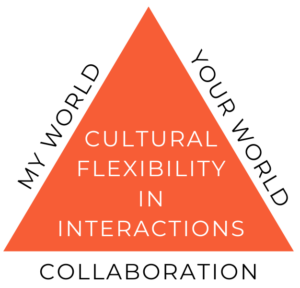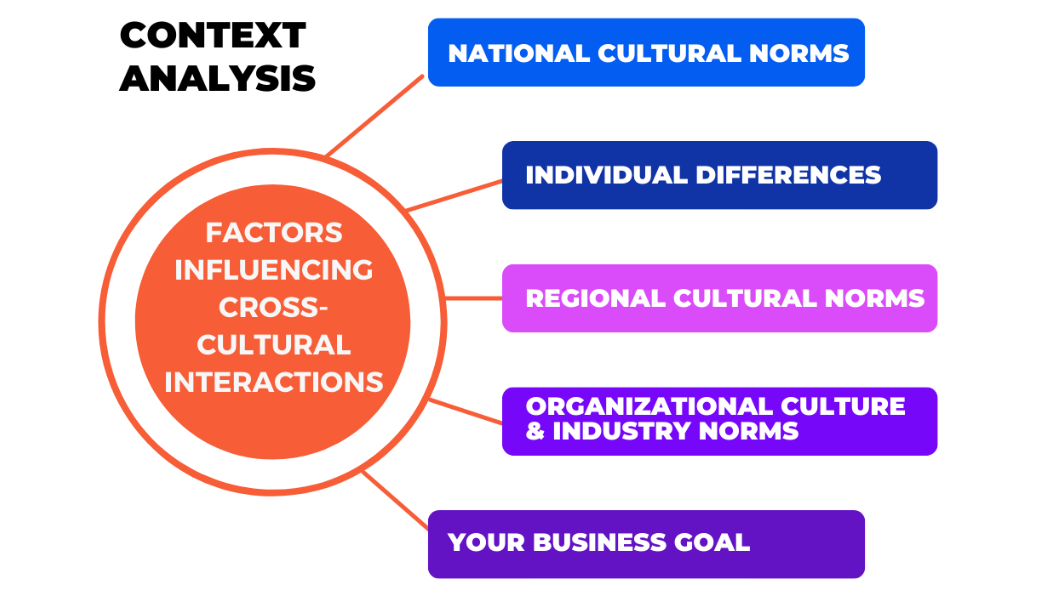EGYPT
CULTURE & COMMUNICATION IN OUTSOURCING
25. November 2024, Birthe Ravn Greisen
THE ROLE OF CROSS-CULTURAL COMMUNICATION IN EUROPEAN OUTSOURCING TO EGYPT
European companies increasingly turn to Egypt for IT outsourcing, drawn by its skilled labor and cost-effectiveness. Yet, success in these partnerships depends on more than technical compatibility
For the outsourcing company, handing a critical part of their business operations to another company implies relying on successfully implementing the outsourcing project.
For the Egyptian IT service provider, achieving this success depends on effective teamwork and collaboration throughout the outsourcing process.
Compared to domestic outsourcing projects, IT offshore outsourcing projects bear additional challenges, such as navigating cultural differences.
While Egypt shares some cultural similarities with Europe, differences in business communication, work ethics, and management styles remain.
Consequently, cross-cultural collaboration and teamwork are critical strategic elements in outsourcing partnerships.
For Egyptian service providers, investing in cross-cultural training at the beginning of a project increases the chances of success. It helps prevent misunderstandings and actively builds smoother collaboration, serving as a strategic choice in establishing a reputation as a reliable high-quality outsourcing partner.
For the outsourcing project to be successful, leaders and team members representing the European outsourcing company likewise must act with cultural flexibility in every stage of the outsourcing process.
CULTURAL FLEXIBILITY
Cultural flexibility in interactions involves:
- Understanding and respecting the cultural norms of foreign business partners.
- Cross-cultural code-switching in interactions when needed, while maintaining your own cultural perspectives and identity.
In IT outsourcing partnerships, the most observed areas relying heavily on cross-cultural flexibility in interactions are:
- Communication
- Conflict resolution
- Trust-building techniques
This article elaborates on cross-cultural communication in European outsourcing to Egypt.
The point is to understand
- What people are telling you
- Why they are telling you
- Why they act how they do
UNDERSTANDING EGYPTIAN AND EUROPEAN COMMUNICATION STYLES
High-Context vs. Low-Context Communication
One of the cultural differences in European and Egyptian communication styles is the high-context versus low-context distinction. Egyptian communication tends to be high-context, relying on nonverbal cues, implied meanings, and an indirect style. In contrast, many European cultures, especially those in Northern Europe, prefer low-context communication, which is more direct and gets to the point of the conversation.
Europeans may perceive Egyptian communication as unclear, while Egyptians might see Europeans as overly blunt. Effective teamwork, therefore, requires awareness and an adaptable communication style that allows both sides to find common ground.
Remember that the younger generation of Egyptian professionals, especially high-tech professionals, are often quite direct in communication. Culture is dynamic.
Clarity, clarity, clarity…
Setting clear expectations is important at every company level and holds all employees accountable for their job responsibilities. In cross-cultural teamwork, to minimize misunderstandings, clarity about expectations in work relations, job responsibilities, and accountability should be very specific and communicated from the beginning of the project. Everybody needs to be on the same page regarding what is required of them.
Expressive vs. Reserved Communication
Egyptian communication tends to be expressive while Nordics and Germanic Europeans are reserved communicators. At meetings in expressive cultures like Egypt, people speak loudly to be heard clearly and often raise their voices to emphasize important points. To the Egyptians, it may seem that the monotone, soft-speaking, and reserved Europeans have nothing significant to say. This might cause unexpected problems. During a training session, I held on managing teamwork across Europe and Egypt, an Egyptian team leader expressed uncertainty concerning the deadlines he got from European outsourcing partners:
“They just give a date. They never underline it or raise their voices about it. So how can I know if it’s important and if there is a real deadline?”
We discussed the reserved European communication style, the monotone way of speaking as a sign of the European team leader acting “in control and self-respect” and the fact that it WAS a deadline. No doubt, this was a clarifying moment for some of the Egyptian participants.
Conversational Overlap vs. Turn-taking
In expressive cultures interruptions in conversations are frequent, and at meetings, several people may talk simultaneously and with each other. People from reserved countries in Northern Europe consider conversational overlap disruptive. This might lead to irritation and conflict during meetings unless both parties pay attention to this difference and make cultural adjustments.
Egyptians smile with their heart
Face expressions are vital in communication in Egypt. Egyptians often smile. I usually say, “Egyptians smile with their heart”. As a European, smile back if the context allows. Like in most of Europe, soft and natural eye contact is normal.
Listening Habits
Egyptians are rather good listeners, however, they may interrupt. They can disagree charmingly and react cleverly to Westerners.
Among Europeans, the Nordics (Danes, Finns, Norwegians, and Swedes) are often characterized as the best listeners. Their reserved way gives them no incentive to interrupt, but they are willing to ask questions afterward. Danes need humor, which goes well with the Egyptian mentality. The Germans and Dutch are also strong listeners, and like facts. Germans like plenty of background information and take things literally (few or no jokes at work).
Motivation for Cross-Cultural Adaptation in Communication
Adapting one’s communication style to accommodate different norms for the appropriate behavior of another culture is not always easy. According to Andrew Molinsky’s research on cross-cultural code-switching, psychological challenges are faced by individuals, because of
- The task performance: Having to execute new and maybe complex sets of behaviors.
- Personal values: The degree to which the new behavior conflicts with internalized values and beliefs.
However, when team members see the positive outcomes of cultural flexibility, such as improved collaboration, clearer communication, and strengthened teamwork, they are often motivated to engage in further adaptation.
Leaders can reinforce the importance of cultural adaptability by providing positive feedback and recognizing efforts to adapt communication styles.
The Role of Cross-Cultural Training in Communication
Investing in cross-cultural training is a strategic approach to equipping teams with the skills to handle different communication styles and prevent misunderstandings. For instance, European team members can learn to incorporate more relational context in their interactions. In contrast, Egyptian team members might adopt a more explicit approach to ensure clarity in responses, aligning with European expectations for directness.
Practical Steps to Strengthen Communication in European-Egyptian Outsourcing Relationships
To optimize communication in European-Egyptian outsourcing partnerships, consider the following steps:
- Implement Cultural Intelligence Training: Equip teams with skills for interpreting and adapting to diverse communication styles.
- Encourage Open and Structured Communication Channels: Create regular check-ins and feedback loops that allow both sides to clarify expectations and ask questions openly, reducing the potential for misunderstandings. Daily Scrum meetings have proved effective.
- Visits: Face-to-face meetings: In-person interactions build trust and strengthen relationships, enabling a better understanding of cultural nuances and work styles. These visits provide opportunities to resolve complex issues, align expectations, and support a sense of partnership that is often difficult to achieve through virtual communication alone.
- Promote Flexibility and Recognize Cultural Adaptation Efforts: Acknowledge and reward team members who demonstrate cultural flexibility, reinforcing the value of adaptability in cross-cultural interactions.
Conclusion
People are adaptable, so communicating the differences and strategies for cultural flexibility in interactions, and setting up the rules of work with cross-cultural clients at the beginning of a project increase the chances of success.
Always remember, that culture is dynamic and every individual has their cultural thumbprint. National cultural traits are general tendencies and should be considered as a framework and not for stereotyping. Every interaction should be considered in context.
THE CONTEXT:
Factors influencing cross-cultural interactions
Do you have any questions?
Contact:
FOR CROSS-CULTURAL TRAINING AND WORKSHOPS:
VISIT: RAVN cultures-across – services
For information about training and workshops: contact: mail@cultures-across.dk
FOR MORE INSIGHTS:
Why Outsourcing to Egypt is a Clever Choice
Egypt – Culture and Knowledge Transfer in Outsourcing
Birthe Ravn Greisen
Cross-cultural trainer, MSc in Economics and Business Administration, Author




